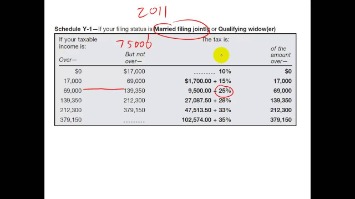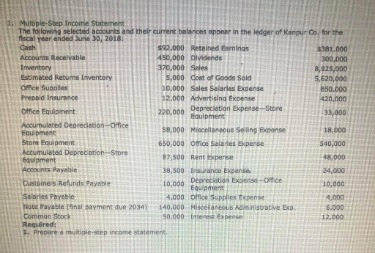As a business evolves, so too might the need for more complex financial oversight, prompting a shift from relying on a bookkeeper to needing the services of an accountant. Typically, bookkeepers don’t need to have a degree, while accountants are expected to have at least a bachelor’s degree. In many cases, a bookkeeper may not need a bachelor’s degree, as skills can be learned on the job or through a basic course. However, a keen eye for detail, solid math skills, and a methodical approach to their work are essential traits for successful bookkeepers. They ensure that an individual or business is paying taxes correctly and on time, and they offer advice on how to reduce costs, increase revenues, and improve profits. These programs are beneficial for new bookkeepers who don’t have much real-world professional experience, but hiring a bookkeeper without one of those credentials can be just as effective for your business.
Great! The Financial Professional Will Get Back To You Soon.
Bookkeepers post debits and credits to record each transaction and make sure all income and expenses are accounted for. These elements are crucial for a business owner to understand the day-to-day picture of their business’s financial health. Additionally, maintaining the books on a daily or weekly basis prevents having to play catch up when tax time rolls around. They are responsible for analyzing your financial data, providing tax guidance, and making strategic financial decisions. Accountants, especially Certified Public Accountants (CPAs), possess a higher level of education and expertise in the field. They are more suitable for larger organizations or businesses with complex financial needs.
Financial Reporting and Analysis
Your bookkeeper does not need any special licensing or certifications to be successful. However, for this reason, many bookkeepers are often supervised by their clients or the company’s accountant to ensure accuracy. Small businesses often have unique accounting needs, such as managing payroll and tracking accounts receivable and payable. Accountants https://www.accountingcoaching.online/how-to-reconcile-total-manufacturing-cost-with/ can help small business owners navigate these challenges and ensure that they comply with tax regulations. They can also provide financial advice to help small business owners make informed decisions. A bookkeeper records & organizes financial transactions, maintains accurate financial records, and generates basic financial reports.
What Is Bookkeeping?
Bookkeepers typically have a high level of accuracy and attention to detail, while accountants have a broader view of a business’s financial operations. In some cases, a small business owner might find an accountant who offers both bookkeeping and accounting services. Accountants, on the other hand, interpret and analyze the financial data collected by bookkeepers.

The size and scope of a business will determine whether the company needs a part-time bookkeeper, full-time specialist bookkeeper, or an entire accounting department. Financial institutions, investors, and the government need accurate bookkeeping accounting to make https://www.online-accounting.net/ better lending and investing decisions. Bookkeeping accuracy and reliability are essential for businesses to succeed for staff, executives, customers, and partners. For any new entrepreneur, it can seem daunting to start managing the finances of a new business.
Yes, in the UK, bookkeepers do not need to take any professional certifications, whereas there are several routes an accountant can take. The minimum qualification for an accountant is an AAT qualification, with the expectation of progression to ACCA, ACA, or CIMA qualifications. Certified public accountants often work as an apprentice before branching out on their own. Whether you hire an accountant, a bookkeeper or both, ensure they’re qualified by asking for client references, checking for certifications or performing screening tests. When looking for a certified bookkeeper, first decide if you want to hire an independent consultant, a firm or a full-time employee if your business is large enough. Ask for referrals from friends, colleagues or your local chamber of commerce or search online social networks like LinkedIn for bookkeepers.

If you want someone with a higher level of mastery in accounting, consider hiring a certified public accountant. CPAs are accountants who have completed a higher level of education and have passed the CPA exam. CPAs also need to keep their certification current, so they’re often up to date on important tax law changes. By educational requirements, the occupations expected to grow the fastest are those typically requiring some form of graduate-level education.
- Bookkeepers primarily handle day-to-day financial tasks, such as recording transactions, managing invoices, and reconciling accounts.
- Accountants may also provide financial advisory services, offering insights into investment opportunities, mergers, acquisitions, and other strategic financial decisions.
- On the other hand, the median annual wage for accountants and auditors was $73,560 as of May 2020, according to the BLS.
- Bookkeepers may start working for a small business to gain experience and then go back to school for a degree in accounting or finance.
- As a business leader, you should have a good idea of which professionals best suit the needs of your company.
Depending on whether you hire a private accountant or choose to work with an accounting company, you could be paying a fixed rate for specific services or an hourly rate. Generally, accountants are not bookkeepers, because their responsibilities are often more detailed than those of a bookkeeper. However, there is no law that says an accountant cannot also act as your company’s bookkeeper. Many small businesses will want to find an accountant who can handle their bookkeeping costs to save time and money. Bookkeepers must ensure that financial data is recorded correctly and that financial statements are accurate. In contrast, a management accountant (also known as a managerial or cost accountant) analyzes financial data to support internal decision-making, budgeting, forecasting, and strategic planning.
A strong endorsement from a trusted colleague or years of experience are important factors when hiring a bookkeeper. There are no formal educational requirements to become a bookkeeper, but they must be knowledgeable about financial topics and accounting terms and strive for accuracy. Here’s what you need to know about these two roles to determine which one your business needs.
To maintain certification, you need to earn at least 60 continuing education credits every three years. A bookkeeper checks for errors when creating reports and managing the general ledger. You will private vs public accounting check bank deposits for fraud, fix balance sheet errors, and maintain accurate payroll records. Bookkeepers play a vital role in the business accounting cycle by collecting and inputting data.
Bookkeepers prepare the information and documents that accountants need come tax season. It’s the bookkeeper’s task to record all the sales and purchases the business made in the ledger and to provide the supporting documents needed. Ultimately, what strengthens your credentials are sufficient experience and a good track record, either in bookkeeping or accounting.
Too often, small businesses tend to leave bookkeeping tasks undone or poorly completed, forcing the company’s CPA to complete these tasks before they can handle higher-level accounting duties. In fact, this issue is so widespread that many accounting firms maintain in-house bookkeepers to handle related projects. An accountant is a more specialized financial professional who handles higher-level financial structuring and analysis for a business. Becoming an accountant requires a four-year college degree in accounting or finance, or in business administration with additional specialized training.
If you’ve ever found yourself puzzled by the terms accountant and bookkeeper, you’re not alone. When it comes to finance, these titles often get tossed around interchangeably, leading to confusion about their actual roles. By knowing these, you can delegate tasks properly and ensure that you cover all areas of the business’ finances. Accountants can become a Certified Public Accountant (CPA) by passing the Uniform Certified Public Accountant exam. Tax strategy and planning, as well as tax filing, are tasks often done by accountants.
Bookkeepers record and classify financial transactions, while accountants interpret, analyze, report, and summarize financial data. The bookkeeper’s role is transactional, laying the groundwork for the accountant’s role, which is more advisory and analytical in nature. A bookkeeper is primarily responsible for recording the financial transactions of a business. They maintain complete and up-to-date detailed accounts, including purchases, sales, receipts, and payments.





